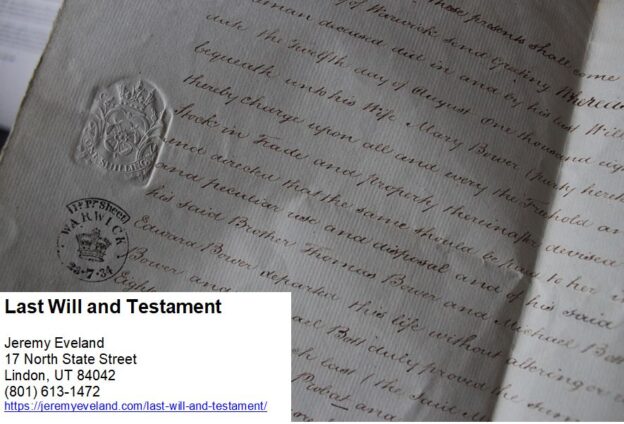Business Lawyer West Haven Utah
Are you a business owner in West Haven, Utah? As you navigate the complex legal landscape of running a business, it's crucial to have a skilled professional by your side. That's where a business lawyer comes in. From contract drafting and review to resolving disputes and ensuring compliance with regulations, they will be your guide through every legal hurdle. In this article, we will explore the importance of hiring a business lawyer in West Haven, Utah and how they can protect your interests.
Key Takeaways
- Hiring a business lawyer in West Haven, Utah is important for protecting a company's legal interests and ensuring compliance with laws.
- Common legal issues faced by businesses in West Haven, Utah include contract disputes, breach of contract, and local laws and regulations.
- A business lawyer can help with contract drafting and review by creating comprehensive contracts, identifying potential risks, and minimizing costly mistakes.
- Understanding business formation and entity selection in West Haven, Utah is crucial, and a business lawyer can provide guidance in selecting the right entity type and assisting with necessary paperwork.
The Importance of Hiring a Business Lawyer in West Haven Utah
You should consider hiring a business lawyer in West Haven, Utah because they can help protect your company's legal interests. The importance of hiring a business lawyer cannot be overstated, especially in today's complex and ever-changing business landscape. A skilled and knowledgeable business lawyer in West Haven, Utah can provide you with valuable guidance and advice to navigate through various legal issues that may arise.
One of the key reasons why hiring a business lawyer is crucial is their ability to ensure compliance with local, state, and federal laws. They have a deep understanding of the legal framework that governs businesses in West Haven, Utah. By having a business lawyer on your side, you can rest assured that your company operates within the boundaries set by the law.
Additionally, a business lawyer can assist you in drafting and reviewing contracts or agreements to protect your interests. Whether it's negotiating deals with suppliers or entering into partnerships with other businesses, having a skilled attorney by your side ensures that you are making informed decisions and safeguarding your rights.
Furthermore, a business lawyer can also play an essential role in dispute resolution. In case any conflicts or disagreements arise between your company and another party, whether it be employees, customers, or competitors, a skilled attorney will work towards resolving these matters efficiently while minimizing potential risks for your company.
Common Legal Issues Faced by Businesses in West Haven Utah
One of the most common legal issues faced by businesses in West Haven, Utah are contract disputes. When running a business, it is crucial to have a solid understanding of contracts and their implications. However, misunderstandings or disagreements can arise, leading to conflicts that may have serious consequences for your business. This is where a skilled and experienced business lawyer can be invaluable.
Here are some common legal issues that businesses often encounter in West Haven, Utah:
- Breach of contract: A breach occurs when one party fails to fulfill their obligations as outlined in the contract. This can lead to financial losses and damaged relationships.
- Contract interpretation: Disputes may arise due to differing interpretations of contract terms or clauses. A business lawyer will ensure that your interests are protected and that any ambiguities are resolved in your favor.
A trusted business lawyer in West Haven, Utah understands the local laws and regulations specific to this area. They have extensive knowledge and experience dealing with various legal issues faced by businesses like yours.
By collaborating with a skilled business lawyer, you can prevent unnecessary disputes and protect your interests from potential contractual pitfalls. They will carefully review any contracts before you sign them, ensuring that they align with your goals and objectives while minimizing risks.
In conclusion, navigating through legal issues is an essential part of running a successful business in West Haven, Utah. By having a reliable business lawyer on your side, you can confidently address these challenges while focusing on what truly matters – growing your business.
Now let's explore how a business lawyer can help with contract drafting and review in West Haven, Utah without missing any important details.
How a Business Lawyer Can Help With Contract Drafting and Review in West Haven Utah
Hiring a skilled business lawyer in West Haven, Utah can be beneficial when it comes to drafting and reviewing contracts. Whether you are starting a new business or have an established one, having a business lawyer by your side can provide you with the legal advice and guidance you need to ensure that your contracts are well-drafted and protect your interests.
Contract drafting is a critical aspect of any business operation. A business lawyer in West Haven, Utah has the knowledge and expertise to create comprehensive contracts tailored to your specific needs. They can help you identify potential risks, negotiate favorable terms, and ensure that all legal requirements are met.
Equally important is contract review. It's essential to have someone who can carefully examine each clause and provision to ensure its accuracy and legality. A business lawyer will meticulously review the contract for any loopholes or ambiguous language that could lead to future disputes or litigation.
By hiring a business lawyer in West Haven, Utah for contract drafting and review, you gain peace of mind knowing that your agreements are legally sound. Their attention to detail helps minimize the risk of costly mistakes or misunderstandings down the line.
With solidly drafted contracts in place, you can confidently proceed with your business operations while minimizing potential legal issues. Now that we understand how a skilled business lawyer can assist with contract matters let's explore another crucial area: understanding business formation and entity selection in West Haven, Utah without writing 'step'.
Understanding Business Formation and Entity Selection in West Haven Utah
Understanding the different types of business entities and how they are formed can greatly impact the success and legal structure of your company in West Haven, Utah. When starting a business, it is crucial to consult with a knowledgeable business lawyer who specializes in business formation and entity selection to ensure that you choose the right structure for your specific needs.
In West Haven, Utah, there are several types of business entities available, each with its own advantages and disadvantages. To help you better understand these options, here is a table outlining the most common types:
| Entity Type | Description |
|---|---|
| Sole Proprietorship | A business owned and operated by one individual |
| Partnership | A legal relationship between two or more individuals or entities |
| Corporation | A separate legal entity from its owners |
| Limited Liability Company (LLC) | Combines the benefits of both corporations and partnerships |
A business lawyer in West Haven, Utah can guide you through the process of selecting an appropriate entity type based on factors such as liability protection, taxation considerations, management flexibility, and long-term goals. They will ensure that all necessary paperwork is filed correctly and assist in drafting important documents such as operating agreements or articles of incorporation.
By understanding the various types of business entities available and seeking guidance from a trusted business lawyer in West Haven, Utah, you can make informed decisions that will set your company up for success. With the right entity selection in place, you will have a solid foundation to navigate employment law matters for businesses in West Haven without any unnecessary complications.
Now let's explore how a skilled employment law attorney can assist your company in navigating employment law matters effectively.
Navigating Employment Law Matters for Businesses in West Haven Utah
To effectively navigate employment law matters in your West Haven business, it's essential to consult with an experienced attorney who specializes in this area. Employment law can be complex and ever-changing, making it crucial to have a knowledgeable lawyer by your side to ensure compliance and protect your business interests. Here are three reasons why you should consider consulting with a business lawyer in West Haven, Utah for navigating employment law matters:
-
Expertise: An experienced lawyer who focuses on employment law understands the intricacies of state and federal regulations that impact businesses in West Haven. They can help you understand your rights and obligations as an employer, ensuring that you comply with all relevant laws.
-
Risk Mitigation: Navigating employment law matters can pose significant risks for businesses. Non-compliance with regulations could result in costly lawsuits or penalties. A skilled attorney will work proactively to identify potential legal issues and develop strategies to mitigate risks before they escalate into serious problems.
-
Employee Relations: Maintaining positive relationships with employees is vital for any successful business. An employment lawyer can assist you in creating legally sound policies, contracts, and procedures that promote a fair and harmonious work environment while protecting your company's interests.
By partnering with a qualified business lawyer in West Haven, Utah, you can ensure that your employment practices align with the law while minimizing potential risks associated with non-compliance or employee disputes.
Transitioning into the subsequent section about protecting intellectual property rights for businesses in West Haven, Utah…
Protecting Intellectual Property Rights for Businesses in West Haven Utah
When it comes to safeguarding your business's intellectual property rights in West Haven, Utah, consulting with a knowledgeable attorney is crucial. A business lawyer specializing in intellectual property can help you understand and protect the valuable intangible assets that contribute to your company's success.
In West Haven, Utah, businesses face challenges when it comes to protecting their intellectual property. From trademarks and patents to copyrights and trade secrets, these valuable assets need proper legal protection. An experienced business lawyer will guide you through the process of registering your intellectual property and ensuring that it is adequately protected from infringement.
One of the essential steps in protecting your intellectual property is conducting thorough research to ensure that no one else has already claimed similar rights. A skilled attorney will assist you in performing comprehensive searches and analyzing potential risks before filing for registration.
Furthermore, a business lawyer will help you draft strong contracts and agreements that clearly define ownership rights and prevent unauthorized use or disclosure of your intellectual property. They can also advise you on licensing opportunities or partnerships that may generate additional revenue while preserving your rights.
By working closely with a trusted business lawyer in West Haven, Utah, you can safeguard your company's most valuable assets – its ideas and innovations. With their expertise by your side, you can focus on growing your business while knowing that your intellectual property is protected.
Transition: Resolving disputes related to intellectual property violations is another critical aspect for businesses in West Haven, Utah.
Resolving Disputes and Litigation for Businesses in West Haven Utah
Resolving disputes and litigation can be a complex process for businesses in West Haven, Utah. When disagreements arise, it's important to have the guidance and expertise of a skilled business lawyer who understands the specific laws and regulations in your area. Here are three reasons why hiring a business lawyer in West Haven, Utah can be beneficial for resolving disputes and litigation:
-
Knowledge of local laws: A business lawyer in West Haven, Utah is well-versed in the state's laws and regulations that govern businesses. They understand the nuances of local legislation, which can greatly impact how disputes are resolved and litigated. By having a lawyer who is familiar with these laws on your side, you can navigate through the legal process more effectively.
-
Experience in dispute resolution: Business lawyers specialize in resolving conflicts between parties. They have experience negotiating settlements, mediating disputes, or representing clients in court if necessary. Their expertise allows them to assess the situation objectively and develop strategies that protect your interests while seeking an efficient resolution.
-
Legal representation: In the event that litigation becomes unavoidable, having a business lawyer by your side is crucial. They will represent your best interests throughout the entire legal process, from drafting pleadings to presenting arguments in court. With their knowledge of West Haven's legal landscape and their advocacy skills, they will work tirelessly to achieve a favorable outcome for your business.
Compliance With Business Regulations and Licensing in West Haven Utah
Ensuring compliance with business regulations and licensing in your operations is essential for avoiding disruptions and penalties imposed by authorities. As a business owner in West Haven, Utah, it is crucial to understand the various laws and regulations that govern your industry. To navigate this complex landscape successfully, engaging the services of a knowledgeable business lawyer can be immensely beneficial.
A business lawyer in West Haven, Utah will have extensive experience in helping businesses comply with local, state, and federal regulations. They can assist you in understanding the specific requirements that apply to your industry and guide you through the process of obtaining necessary licenses and permits. By working closely with a business lawyer, you can ensure that all legal obligations are met, reducing the risk of interruptions or fines that could harm your operations.
Compliance with business regulations goes beyond merely fulfilling legal obligations – it also helps protect your reputation as a trustworthy and responsible organization. Demonstrating commitment to compliance can enhance public trust in your brand while safeguarding against potential lawsuits or negative publicity.
In addition to providing guidance on regulatory compliance, a skilled business lawyer can offer ongoing support to help you stay updated on new laws or changes affecting your industry. They can review contracts, draft policies and procedures tailored to meet legal requirements, and provide proactive advice on mitigating risks associated with non-compliance.
When it comes to ensuring compliance with business regulations and licensing in West Haven, Utah, partnering with an experienced business lawyer is an investment that pays off both financially and reputationally. Don't leave these critical matters to chance – seek professional counsel today for peace of mind tomorrow.
Frequently Asked Questions
How Much Does It Cost to Hire a Business Lawyer in West Haven, Utah?
Hiring a business lawyer in West Haven, Utah can vary in cost depending on various factors. It's important to consult with a lawyer directly to discuss your specific legal needs and obtain an accurate estimate.
Can a Business Lawyer Help With Trademark Registration and Copyright Protection?
Yes, a business lawyer can assist you with trademark registration and copyright protection. They have the knowledge and expertise to guide you through the legal processes involved in ensuring your intellectual property is properly protected.
What Are the Common Legal Issues Faced by Small Businesses in West Haven, Utah?
Running a small business in West Haven, Utah? You face common legal issues like contracts, employment disputes, and compliance. A business lawyer can help navigate these challenges and protect your interests.
Can a Business Lawyer Assist With Mergers and Acquisitions for Businesses in West Haven, Utah?
Yes, a business lawyer can assist you with mergers and acquisitions for your business in West Haven, Utah. They have the expertise to guide you through the legal process and ensure a smooth transition.
How Can a Business Lawyer Help Navigate Tax Laws and Regulations in West Haven, Utah?
A business lawyer can help you navigate tax laws and regulations in West Haven, Utah. They have the expertise to ensure compliance and minimize your tax liability, allowing you to focus on growing your business.
Areas We Serve
We serve individuals and businesses in the following locations:
Salt Lake City Utah
West Valley City Utah
Provo Utah
West Jordan Utah
Orem Utah
Sandy Utah
Ogden Utah
St. George Utah
Layton Utah
South Jordan Utah
Lehi Utah
Millcreek Utah
Taylorsville Utah
Logan Utah
Murray Utah
Draper Utah
Bountiful Utah
Riverton Utah
Herriman Utah
Spanish Fork Utah
Roy Utah
Pleasant Grove Utah
Kearns Utah
Tooele Utah
Cottonwood Heights Utah
Midvale Utah
Springville Utah
Eagle Mountain Utah
Cedar City Utah
Kaysville Utah
Clearfield Utah
Holladay Utah
American Fork Utah
Syracuse Utah
Saratoga Springs Utah
Magna Utah
Washington Utah
South Salt Lake Utah
Farmington Utah
Clinton Utah
North Salt Lake Utah
Payson Utah
North Ogden Utah
Brigham City Utah
Highland Utah
Centerville Utah
Hurricane Utah
South Ogden Utah
Heber Utah
West Haven Utah
Bluffdale Utah
Santaquin Utah
Smithfield Utah
Woods Cross Utah
Grantsville Utah
Lindon Utah
North Logan Utah
West Point Utah
Vernal Utah
Alpine Utah
Cedar Hills Utah
Pleasant View Utah
Mapleton Utah
Stansbury Par Utah
Washington Terrace Utah
Riverdale Utah
Hooper Utah
Tremonton Utah
Ivins Utah
Park City Utah
Price Utah
Hyrum Utah
Summit Park Utah
Salem Utah
Richfield Utah
Santa Clara Utah
Providence Utah
South Weber Utah
Vineyard Utah
Ephraim Utah
Roosevelt Utah
Farr West Utah
Plain City Utah
Nibley Utah
Enoch Utah
Harrisville Utah
Snyderville Utah
Fruit Heights Utah
Nephi Utah
White City Utah
West Bountiful Utah
Sunset Utah
Moab Utah
Midway Utah
Perry Utah
Kanab Utah
Hyde Park Utah
Silver Summit Utah
La Verkin Utah
Morgan Utah
West Haven Business Attorney Consultation
When you need help from a corporate lawyer near West Haven, call Jeremy D. Eveland, MBA, JD (801) 613-1472 for a consultation.
Jeremy Eveland
17 North State Street
Lindon UT 84042
(801) 613-1472
Related Posts
How To Handle Customer Complaints In Utah
Business Lawyer Saratoga Springs Utah
The Role of Business Law in Protecting Minority Shareholder Rights
What Are The 4 Different Types of Business Law?
Business Lawyer Washington Utah
Business Lawyer South Salt Lake Utah
Legal Requirements for Utah Technology Startups
Business Lawyer Farmington Utah
Due Diligence For Buying A Utah Business
Understanding Utah’s Labor Laws
Business Lawyer North Salt Lake Utah
Product Liability Laws in Utah
Preventing Cybersecurity Breaches
Business Lawyer North Ogden Utah
Business Lawyer Brigham City Utah
Mastering Business Law: Key Essentials For Success
Business Lawyer Centerville Utah
Shareholder Agreements in Utah
Business Lawyer Hurricane Utah
Business Lawyer South Ogden Utah
Last Will and Testament Lawyer





